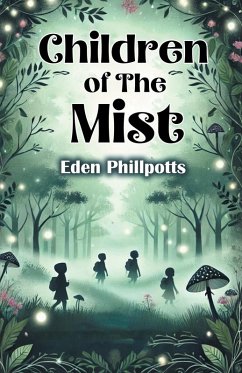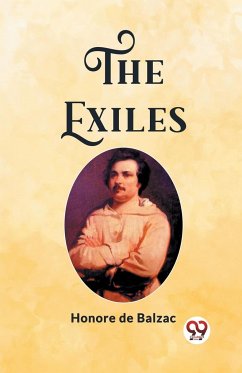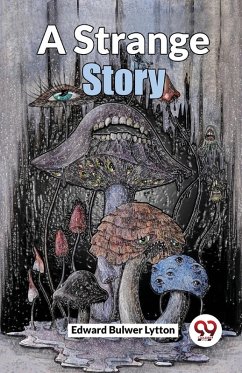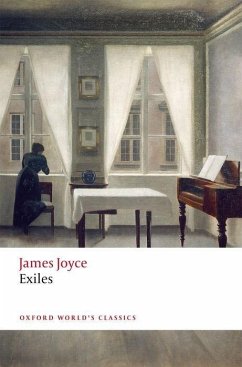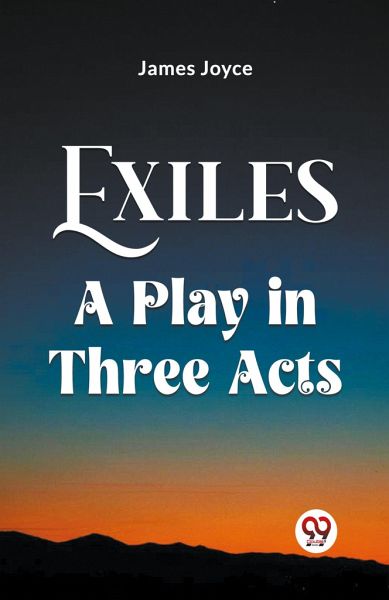
Exiles A Play In Three Acts
Versandkostenfrei!
Versandfertig in 1-2 Wochen
22,99 €
inkl. MwSt.
Weitere Ausgaben:

PAYBACK Punkte
0 °P sammeln!
"Exiles," written by James Joyce, is a play that unfolds in 3 acts, showcasing Joyce's exceptional literary fashion and exploration of complex human relationships. Set against the backdrop of Dublin, a metropolis with profound significance in Joyce's works, the play delves into the intricacies of affection, preference, and the results of private choices. The narrative revolves around Richard Rowan, a writer, and his wife Bertha, who stay in self-imposed exile in Italy. The title "Exiles" indicates a subject matter of displacement, both physical and emotional, as the characters grapple with the...
"Exiles," written by James Joyce, is a play that unfolds in 3 acts, showcasing Joyce's exceptional literary fashion and exploration of complex human relationships. Set against the backdrop of Dublin, a metropolis with profound significance in Joyce's works, the play delves into the intricacies of affection, preference, and the results of private choices. The narrative revolves around Richard Rowan, a writer, and his wife Bertha, who stay in self-imposed exile in Italy. The title "Exiles" indicates a subject matter of displacement, both physical and emotional, as the characters grapple with the effects in their choices. Richard's go back to Dublin prompts a reunion along with his friends, developing a disturbing atmosphere as past relationships and buried feelings resurface. Joyce's exploration of psychological depth and elaborate dialogue is in all likelihood to signify "Exiles." The play may additionally delve into the complexities of affection and constancy, challenging societal norms and moral expectancies. The characters might also confront the results in their choices and grapple with the complexities of human connection. As with plenty of Joyce's paintings, "Exiles" is anticipated to be rich in symbolism and layered meanings, inviting readers to resolve the intricacies of the characters' motivations and the broader remark on human nature.




